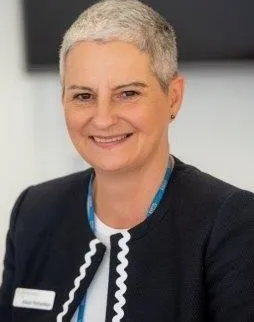Project overview
Our experiences of illness are often complex and require us to do work. This work can take the form of tasks that are delegated to us by health and social care providers. We may need to monitor, manage and record symptoms: take up different diets and physical activity; obtain and use different drugs, dressings and medical devices; develop expertise in using websites and information technology; seek help, access and coordinate input and support from health and social care services; sometimes we have to work out how we are going to pay for the services that we need.
How we get through the work is affected by our capacity to do it, and that is shaped by the different personal and wider resources that we can draw on. All of this is also affected by the services available to us, and by the ways in which our chances in life are shaped by our income, ethnicity, education, gender, and age. The kinds of illnesses we have, how they progress, and the demands that these make on us, mean these factors change over time. We call these changes trajectories. Most research on service user work has looked at a group of chronic diseases with long trajectories and gradually declining service user capacity. This means that much less is known about how service user and caregiver work plays out in other complex trajectories, how they are shaped by different kinds of services, and how people are impacted by different kinds of social and economic disadvantage.
To better understand service user work and capacity, and the different forces that shape them, we will review published studies that tell us about people’s everyday experiences of living with illnesses with three kinds of trajectory. These are long-term conditions associated with significant disability; serious relapsing remitting disease; and rapidly progressing acute disease. We will start by drawing on existing research to build a framework in which we can identify, describe, and understand relevant aspects of published studies. Then we will extract relevant information from them using two different techniques. Combining manual analysis and text mining will enable us to make a comprehensive map of service user work and capacity across different kinds of conditions, their trajectories, service organisation and delivery, and patterns of social and economic disadvantage. Finally, we will work with groups of service users, caregivers and their advocates, and with health and social care professionals and managers to apply the model to inform development of strategies to reduce workload and promote service redesign for people with complex health problems.
The project is led by Professor Carl May at the London School of Hygiene and Tropical Medicine, and also involves individuals at Keele University and Glasgow University.
How we get through the work is affected by our capacity to do it, and that is shaped by the different personal and wider resources that we can draw on. All of this is also affected by the services available to us, and by the ways in which our chances in life are shaped by our income, ethnicity, education, gender, and age. The kinds of illnesses we have, how they progress, and the demands that these make on us, mean these factors change over time. We call these changes trajectories. Most research on service user work has looked at a group of chronic diseases with long trajectories and gradually declining service user capacity. This means that much less is known about how service user and caregiver work plays out in other complex trajectories, how they are shaped by different kinds of services, and how people are impacted by different kinds of social and economic disadvantage.
To better understand service user work and capacity, and the different forces that shape them, we will review published studies that tell us about people’s everyday experiences of living with illnesses with three kinds of trajectory. These are long-term conditions associated with significant disability; serious relapsing remitting disease; and rapidly progressing acute disease. We will start by drawing on existing research to build a framework in which we can identify, describe, and understand relevant aspects of published studies. Then we will extract relevant information from them using two different techniques. Combining manual analysis and text mining will enable us to make a comprehensive map of service user work and capacity across different kinds of conditions, their trajectories, service organisation and delivery, and patterns of social and economic disadvantage. Finally, we will work with groups of service users, caregivers and their advocates, and with health and social care professionals and managers to apply the model to inform development of strategies to reduce workload and promote service redesign for people with complex health problems.
The project is led by Professor Carl May at the London School of Hygiene and Tropical Medicine, and also involves individuals at Keele University and Glasgow University.
Staff
Lead researchers
Research outputs
Carl R. May, Carolyn A. Chew-graham, Katie I. Gallacher, Katja C. Gravenhorst, Frances S. Mair, Ellen Nolte & Alison Richardson,
2023, NIHR open research, 3, 31
Type: article
